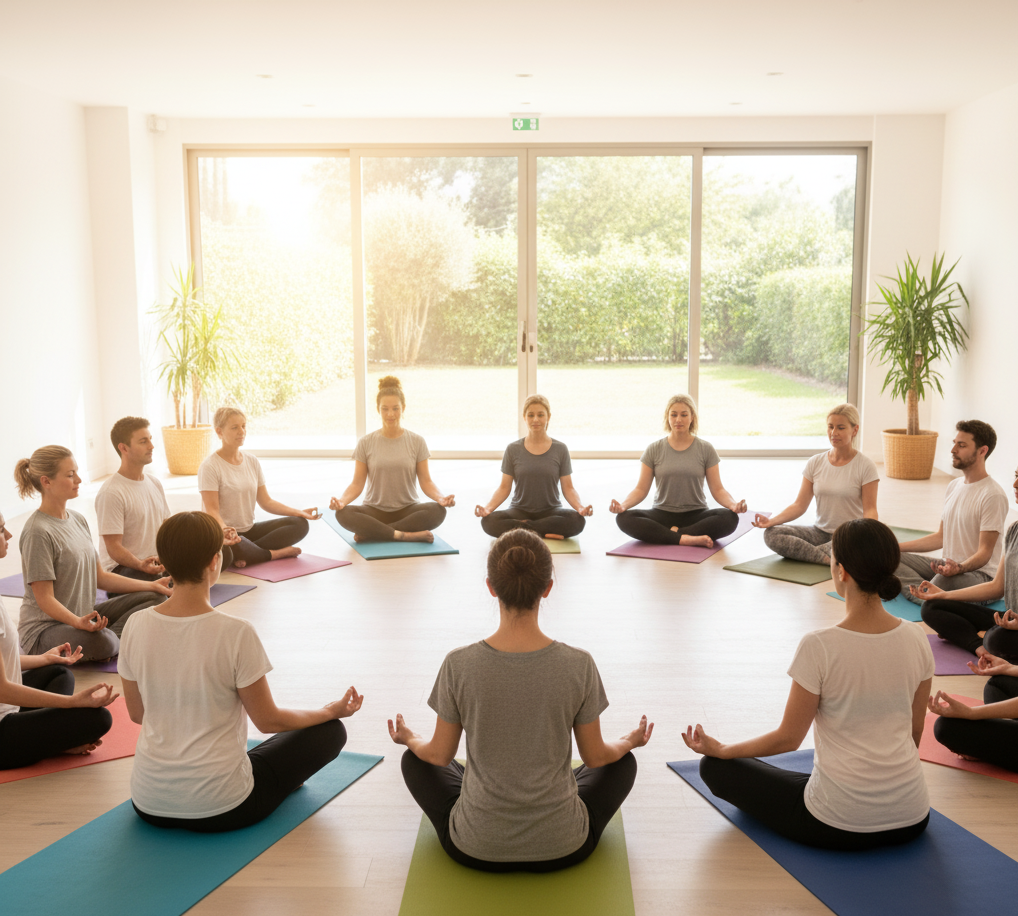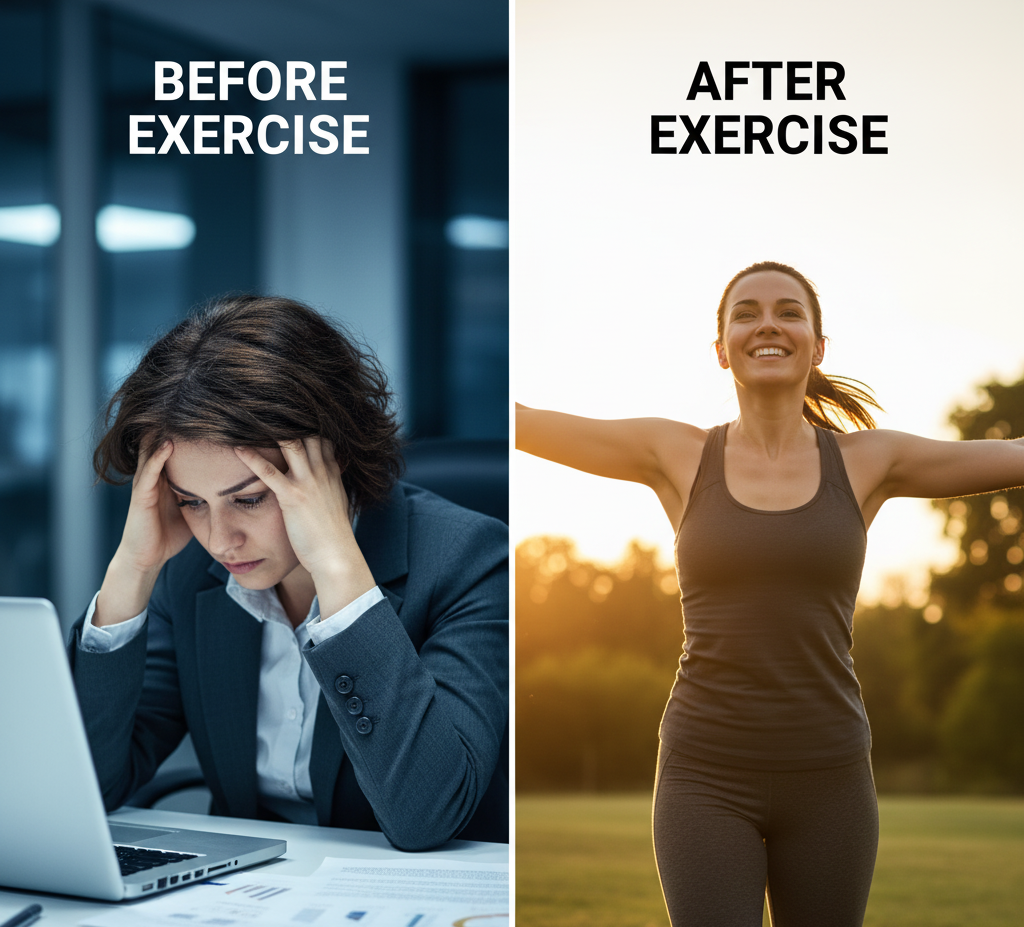
Table of Contents
ToggleOverview: The Strong Connection Of Activity and Mind
Did you know that exercise is one of the best methods to boost your mental health? Most people go to the gym or go for a run for the reason to get in fit or lose weight.
You can be surprised to learn how much exercise helps your mind, from lower anxiety and stress to increasing trust and sleep.
Regular activity changes only just the look of your body but also the way your mind feels and works, based on study results.
Let’s look how performing easy exercises can help you feel happy every day, lower tension, and restore your mental balance
1. Happy Hormones Are activated by Exercise

The feel good chemicals like serotonin, endorphins, and pleasure are released by your brain when you move your body.
These “happy hormones” immediately boost your mood, lower signs of depression, and can bring about a feeling of calm.
Walking, cycling, or dancing for even 20 to 30 minutes will boost those chemicals while boosting your mood.
Advice: choose activities you really enjoy, such as walking, dancing, swimming, or even brisk walking. The key to success than energy is regularity
2. Naturally Lowers Stress and Anxiety

Your body releases the stress hormone stress as you’re under stress. Walking helps control this hormone and keeps level from remaining high for a long amount of time.
Engaging in sport causes your muscles to relax, your breathing get deeper, and your attention get away from concerns. Because of this, walking helps relieve tension without the need for medicine!
Research shows:
Stress levels are 40% lower in those who regularly exercised
3. Increases Trust and confidence

Exercise changes how you feel about yourself in addition to improving your mood.
You get more confident as your body, power, or stamina improves. Relationships, career, and personal goal all benefit from the feeling of success.
Little successes count:
Finishing a run
Using larger weights
Following your exercise routine for a week
These successes create mental momentum that increases your motivation and sense of self-worth.
4. Increases the Level of Quality of Sleep

Good moods and restful sleep go hand in hand. Because exercise lowers stress and balances your body’s natural sleep pattern (circadian cycle), it helps you sleep longer, deeper, and faster.
The Sleep Foundation states that regular exercisers are 55% more likely to report having better sleep.
The ideal time to work out for better sleep is:
Exercises in the morning or late in the afternoon
Avoid heavy workouts soon before bed
5. Helpful in battling Brain Weakness and Stress

A common term for activity is “natural depression treatment.” It increases focus and recall, helps with emotional management, and facilitates the growing of new brain cells.
Even 15 minutes of light activity each day can lower the risk of depression by 26%, found Harvard Healthcare.
Top activities for depression:
Walking outside, especially in the sun
Yoga and stretches
Exercise classes in groups (social connection also helps)
6. Increases Memory and Brain Function

Your brain receives more blood and oxygen when you move, which increases memory, learning, and focus.
Exercise increases the production of BDNF (Brain-Derived neurological Factor), a protein that maintains and protects brain cells.
Interesting fact: Professionals and students who work out three times a week do better on assignments requiring decision-making and study.
7. Improves the Mind-Body Connection

Regular activity increases your understanding of your body’s messages and feelings.
Breathing and movement are combined in methods like yoga, pilates, and tai chi, which keep you centred and in the moment.
This mind-body connection increases self-control and decreases reactive emotions, which makes it easy to deal calm with challenges in life.
8. Gains Mental Power and Resilience

Exercise improves self-control, power, and patience.
You train your brain to get over hurdles by going during hard activities. You can use this strength of character in your daily life to manage relations and deal with stress at work.
The main lesson is that stability improves both physical and mental wellness
9. Social Rewards: Making Contacts

Engaging in a fitness class, run club, or gym offers more than just fitness; it creates community.
Social activity increases mood, lowers emotions of loneliness, and offers emotional support.
Based on studies, those who work out with friends report higher levels happiness and stability compared to those who work out alone
10. Long Term Rewards for Mental Health

Regular exercise has a permanent effect on your mental overall health:
Benefits over time can of:
Lower chance of anxiety or depression
Better mental stability
Increased health
Increased focus and creativity
Stability is important even if you start off little. You will be more cheerful, relaxed, and healthier after just a few minutes each day